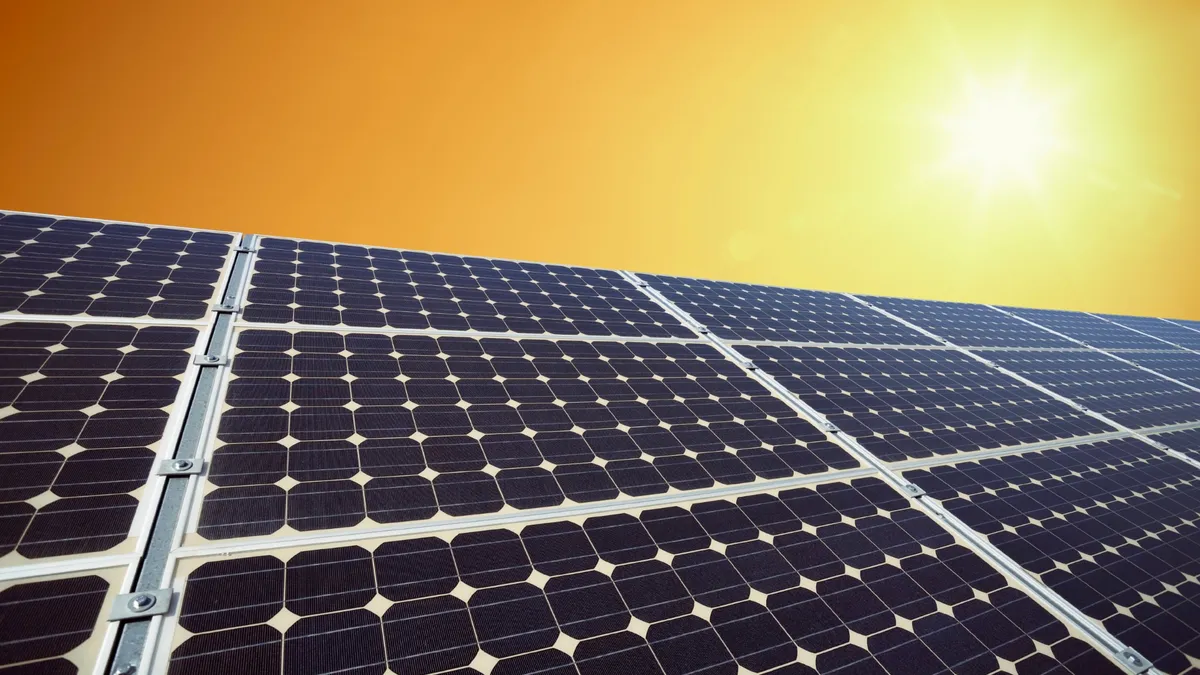Dive Brief:
-
As the solar panel trade case moves to President Donald Trump's desk for a final decision, Suniva and SolarWorld proposed revised tariffs and floor prices to be imposed on foreign solar power cells and modules.
-
The petitioners are now seeking a declining tariff that begins at $0.25/watt for solar cells and a floor price of $0.74/watt for solar modules. For solar modules, they want tariffs that start at $0.32/watt and fall to $0.29/watt in four years.
-
Suniva and SolarWorld Americas, its co-petitioner, originally proposed a tariff of $0.40/watt on imported solar cells and a floor price of $0.78/watt on imported modules.
Dive Insight:
The U.S. International Trade Commission (ITC) in late September unanimously found that imports of cheap solar panels have caused injury to domestic solar manufacturers. The ITC now has until November to make formal recommendations to the White House, which then has two months to decide on a final policy.
Most of the U.S solar industry strongly oppose the tariffs, arguing that it will raise costs and cause a slowdown in solar penetration.
Suniva, however, is looking for a remedy to keep remaining U.S. solar panel manufacturers from joining the ranks of the nearly 30 companies that have gone out of business since 2012. Since their initial petition with the ITC, Suniva and SolarWorld say they have been able to review pricing data provided by the ITC was not previously available. And, as a result, they revised their proposals.
They are now asking for tariffs that start at $0.25/watt for solar cells and drop to $0.235/watt in four years. For solar modules, they want tariffs that start at $0.32/watt and fall to $0.29/watt in four years. These proposed tariffs would be added to tariffs already imposed in 2014 at the behest of SolarWorld.
Suniva’s proposal also includes a revised floor price of $0.74/watt for solar modules that drops to $0.64/watt in four years. The floor price is unusual in this case, GTM Research's Shayle Kann told Utility Dive. All Section 201 remedies usually imposed a tariff or a quota or a combination of the two.
SolarWorld’s revised proposal calls for a quota metric, but both petitioners agree that “an effective remedy must include either the co-petitioners’ requested tariff plus Suniva’s requested module floor price or the co-petitioners’ requested tariff plus SolarWorld’s requested quota.” Suniva says its proposed remedies would be “effective in healing the massive injury suffered by the entire U.S. industry.”
The ITC is set to hear these proposals on Oct. 3, and will send recommendations in mid-November. President Trump then has 60 days to make a decision.













